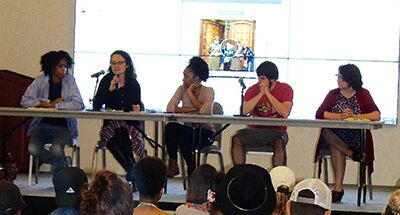In elementary school, we were taught that in the year 1492, Christopher Columbus sailed the ocean blue. We were told that Columbus is a hero because he “discovered” America.
As a US legal federal holiday, our calendars mark the second Monday in October as Columbus Day, but why? Some people are choosing to rewrite history because we now know that Columbus was responsible for bringing violence, slavery, and disease to the indigenous people that already lived in America.

On Oct. 14, 2019, The Department of International Languages and Cultures and the Center for Diversity and Inclusion at UWG decided to celebrate diversity and America’s indigenous people rather than Christopher Columbus for a day they call Luso-Hispanic Day.
“There were already many people, cultures, and civilizations in the Americas, no one was discovered,” said Dr. Yvonne Fuentes, Associate Professor of Spanish at UWG.
The events that the department held throughout the day included a short film session, a Spanish Majors discussion panel, a UWG Chamber Singers performance, a poetry reading event, and a Flamenco dancing event.
“We celebrate the Hispanic and Lusophone cultures, languages, history, music, art and struggles because we want our students to learn about the past and the present of those two countries on the Iberian Peninsula, Spain and Portugal, and their global influences and legacies,” said Fuentes.
The events encouraged students to celebrate diversity and attempt to understand cultures that are different from their own. It also showed students in Spanish classes how their studies can be applied to understanding everyday life.
“This day-long series of events provides a context for students taking Spanish classes to see how what they learn in the classroom can be beneficial in better understanding the world,” said Dr. Betsy Dahms, Associate Professor of Spanish.
You may also like
-
UWG PR Students Score a Georgia Power Tour at Atlanta Corporate Office
-
UWG Hosts Rapha Clinic Annual 5K Fundraiser
-
QSA Annual Drag Show Entertains Eager, Diverse Crowd
-
UWG Students represent at the 2025 AMA International Collegiate Conference in New Orleans
-
Italian Poet Shares His Love Of America Through Poetry at UWG Poetry Reading